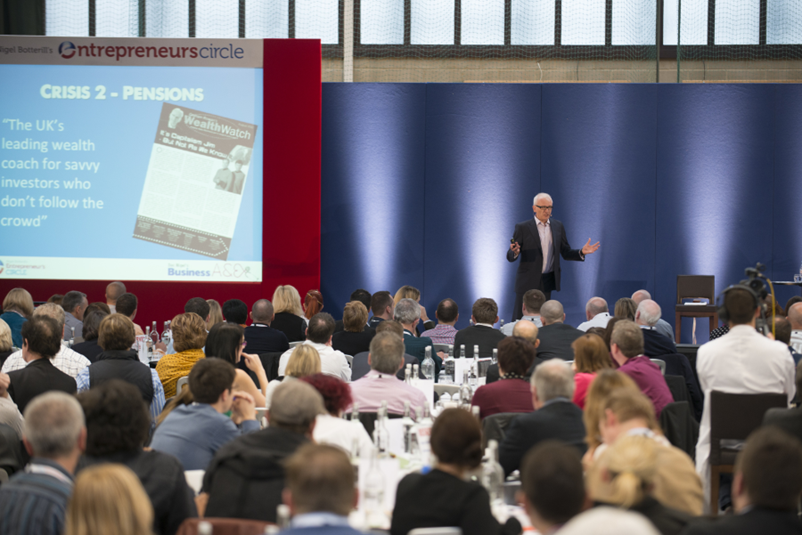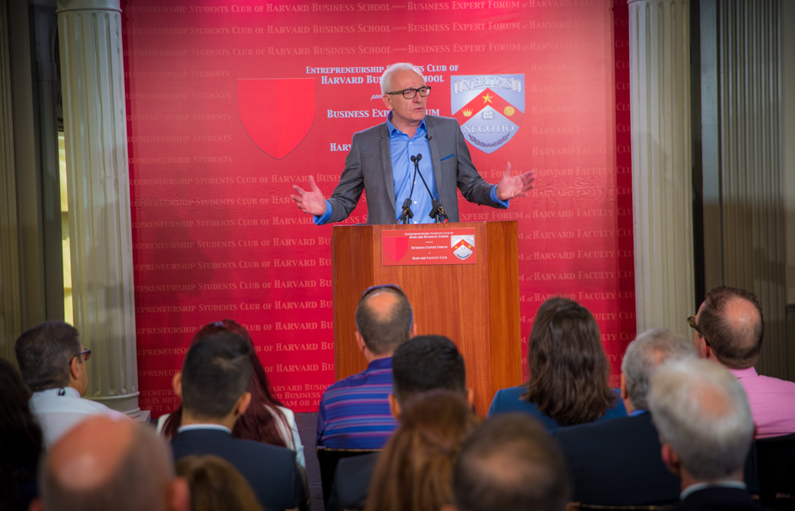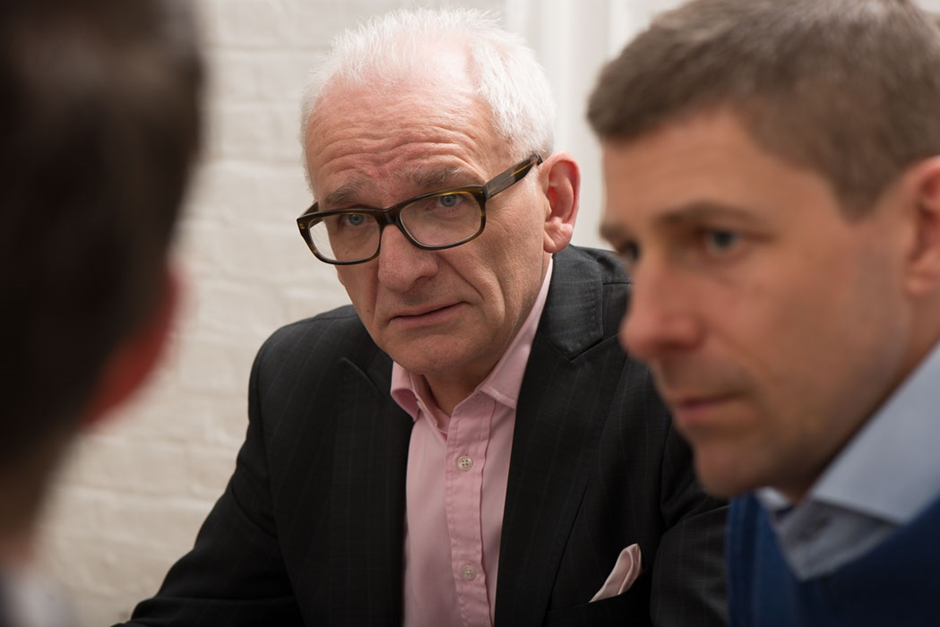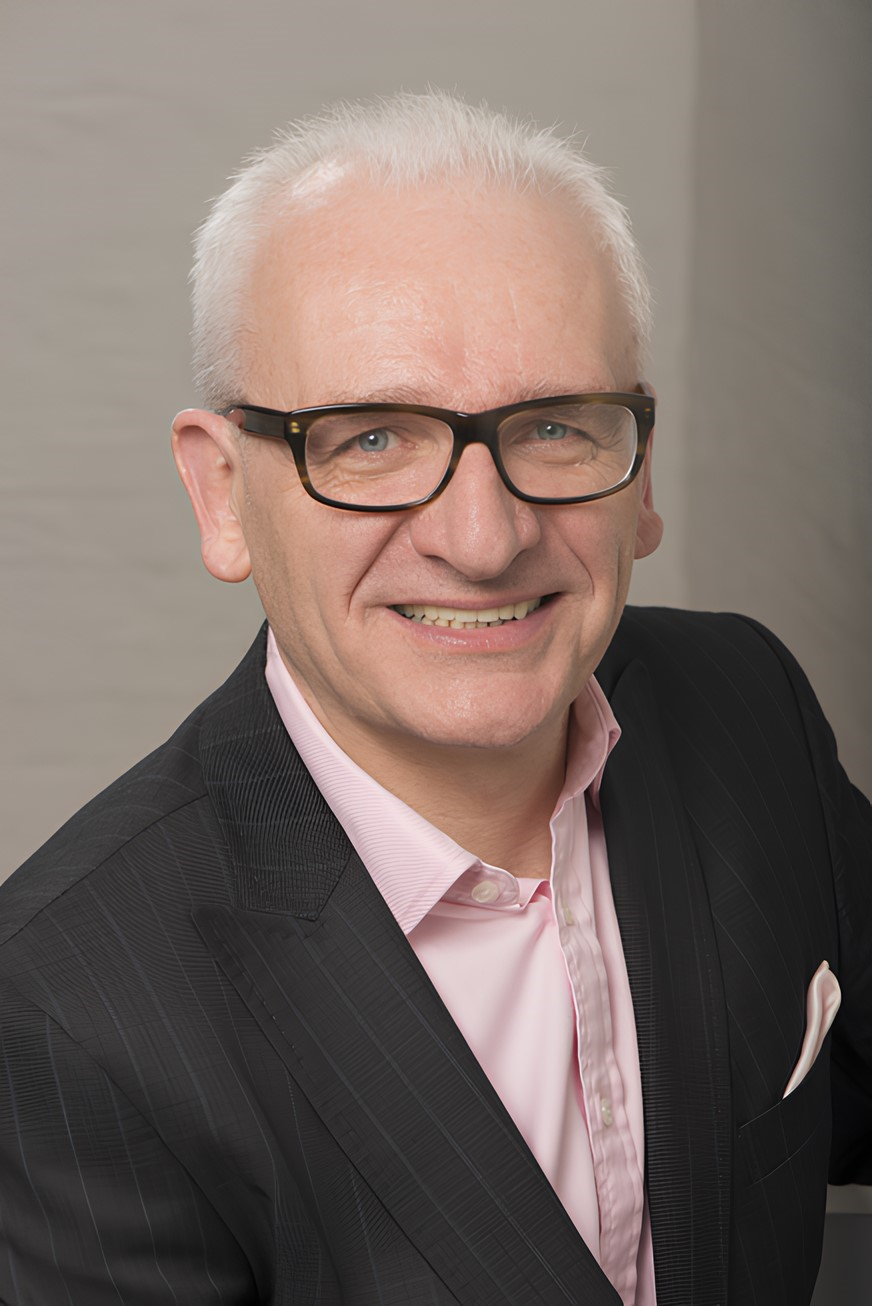In the realm of investments and wealth management, we explore the captivating tale of Graham Rowan. Once the head of a division at Texas Instruments, he unexpectedly found himself immersed in the world of investing during the 1990s. What began with trust soon turned into a costly lesson. This journey led Graham to shift from relinquishing financial control to assuming personal responsibility, igniting his passion to empower others in navigating the intricate landscape of investments.
Graham emphasizes the utmost importance of financial education, shedding light on the complex regulations within the industry while recognizing the significance of consumer education. He advocates three key areas for investors: private equity, private debt, and private money. These potent instruments serve as drivers for both wealth creation and protection.
Looking ahead, he identifies opportunities in commodities, renewable energy investments, and the pursuit of financial independence amidst global geopolitical risks and economic uncertainties. His practical guidance focuses on starting early, making wise diversifications, and taking control of one’s financial destiny.
[ez-toc]
What initially sparked your interest in the world of investing, and how did you embark on your journey in this field?
I’m almost embarrassed to tell you. I was running a software division of a big American company called Texas Instruments, selling multi-million dollar billing systems to telecoms companies around the world. I was making good money and I didn’t have the time or inclination to worry about investing my spare cash. On the advice of a colleague, I appointed a professional wealth manager who put my savings into the Nasdaq. This was the mid-1990s and the raging bull market meant that, every morning, I woke up thousands of dollars richer than when I went to bed. Until March 2000 when I noticed that the market had gone down by a few points. I asked if we should take some money off the table but they sneered at me and said ‘don’t be such a wimp. Don’t you recognise a temporary blip in a raging bull market?’
I left them to it and returned a year later to find that the market had crashed and they had lost me £160,000. They then took me into a room and said ‘I’m sorry, Mr Rowan, these losses take you below the net worth at which we look after clients so we’ll have to let you go.’ I was fired by my own wealth manager and realised that I hadn’t just delegated my investments to them, I had abdicated all responsibility. It was an expensive lesson, but an important one. From that moment, I took personal ownership of my financial future and vowed that I would help others to do the same.
Many individuals face challenges when it comes to constructing a robust investment portfolio. What advice do you have for those struggling to build their investment portfolios effectively?
Firstly, it’s not your fault. We simply aren’t given a financial education at school, at university or in the workplace. Money remains a taboo subject that only a minority of people engage with.
One of the things that annoys me the most is that we live in an age of ever increasing regulation of every aspect of our lives, including the financial services industry. Every year there are some new and more arduous rules to be followed, often in the name of ‘consumer protection’. But there’s never a move to increase financial education so that people can make their own informed choices. That leaves people at the mercy of an industry that does not always have the best interests of its customers at the top of its agenda.

From your extensive experience, what are some of the most common mistakes that people tend to make when investing, and how can these mistakes be avoided?
The first is the one I made – leaving the investment decisions to someone else. For example, if you are in a pension fund with your employer, do you have any idea what sectors, countries or companies you are invested in? Another mistake is that people think too parochially. Many Brits have way too much exposure to the UK stock market but far too little to the Middle East or Asia where much of the growth is happening today.
A third mistake is to assume that the next ten years will be the same as the last ten years. We’ve had a prolonged bull market which is now showing signs that it has run its course. It’s been possible to get great returns from passive funds that track the market without you having to do any thinking. The result is that firms like Blackrock and Vanguard have bigger portfolios than the GDP of many countries. I struggle to believe that this strategy will be so successful in the 2020s now that we have inflation, huge geopolitical risks and a simmering debt crisis to deal with.
How to address these problems? We focus on three areas, private equity, private debt and private money. Private equity is buying shares in companies that are not yet floated on public stock markets. We focus on providing growth equity to companies with a proven business model who are looking to grow their team, develop their products and enter new markets. This is where the most wealth is being created right now, and that’s why, if you look at the portfolio of the family offices of the ultra wealthy, there is more allocated to private equity than to any other asset including real estate. In our own portfolio we are seeing our original investment grow by anything from 4 to 30 times as the companies deliver on their plans.
Private debt includes bonds and loan notes issued by companies which can provide real, above inflation returns. The problem with private equity shares is that they are illiquid and you need to be ready to invest for anything from three to seven years before seeing a return. Private debt enables you to put food on the table and cover your everyday living costs while waiting for your private equity shares to mature.
Private money exists outside the current fiat system with the aim of avoiding the deliberate inflation and currency debasement being implemented by politicians and central banks around the world. I speak to people every week who have a million pounds or more sitting in High Street bank accounts. Not only are they earning miniscule rates of interest, not only do they have the counterparty risk of the bank going bust, but they are losing at least 10% a year in the purchasing power of that cash! One of the counter-intuitive learning points that I reinforce to our members is that cash in the bank is one of the most dangerous ‘investments’ of all!
There are three types of private money – gold, silver and Bitcoin. We believe there is a place in your portfolio for all three. In our Model Portfolio that we share with our members we suggest a 10% allocation to gold and a 5% allocation to Bitcoin.
Looking ahead, where do you believe the most promising investment opportunities will emerge in the coming years, and what should investors be keeping an eye on?
I’ve already mentioned private equity and private debt, but they are only available to people who qualify as accredited investors. In the UK that means an income of £100,000 a year or an investment portfolio of £250,000 outside of your home and pension. If that’s out of reach there are many ways you can get started including some great tax breaks. In the UK you can invest up to £20,000 a year in an individual savings account (ISA) and the growth inside the ISA is tax free. You can then research the sectors and companies that you think will do best in the years ahead.
Try to resist the temptation to jump on bandwagons like the big U.S. tech stocks which were the darlings of the last decade. Some of the biggest bargains we’re seeing at the moment are in the commodities and natural resources sector. For all our sophisticated, digital, twenty-first century lives, much of what we take for granted relies on stuff being dug up out of the ground. Competition for energy, rare earth minerals and food is going to drive these companies much higher in the years to come.
It’s always worth trying to follow the money – for example, politicians with green agendas are throwing vast sums at companies in the renewable energy space so investors can ride the wave of spending by backing the companies most likely to benefit from this torrent of cash. Some of my best sources of information on new opportunities are Money Week magazine and research by firms like Bytetree and George Gammon’s Rebel Capitalist team.
In the context of investments, what do you perceive as the most significant risks on the horizon, and how can investors mitigate these risks?
How long have you got? I recently spoke at a Beaufort live event in London on the risks to our freedom on many levels. Most people are way too complacent after eighty years of peace, prosperity and social mobility. It’s incredibly naive to assume the next eighty years will be a simple action replay. We have three situations that could trigger World War 3 – Ukraine, the Middle East and Taiwan. We have increasing threats to our freedom of movement and freedom of speech. We have the serious probability of governments introducing Central bank Digital Currencies, (CBDCs), programmable money that would bring Orwell’s 1984 to full fruition. And we have the arrival of AI and robotics threatening not just factory jobs but white collar professions in the legal, accounting and even the medical sectors.
There’s an inexorable shift of economic and political power from West to East, a realistic threat to the dollar’s role as the world’s reserve currency and a rising level of taxation as fewer productive workers support an ageing population.
How do we respond to all this? As citizens, I think we have to take every legal action that we can to push back against the forces that are reducing our freedoms. As investors we have to take a leadership role in our families and accumulate as much wealth as possible to maximise the choices available to ourselves, our children and our grandchildren. And, most of all, we have to have a Plan B. And this is where most people slip up. I encourage our members to acquire at least one second residency or citizenship so that, if the country where you live becomes unbearable, you have somewhere else to go. You only have to look at Mirela’s life story to understand the importance of this.
Back in 2018, when I thought the UK was going to end up with a Marxist government led by Jeremy Corbyn, I bought property in Montenegro and obtained residency there. Boris Johnson surprised us by winning the next election, but he must have accidentally picked up Corbyn’s manifesto because the Conservatives have moved so far to the left that they might as well call themselves Socialists. So I moved again, this time to Portugal where I can enjoy more sunshine and less tax!
As individuals’ portfolios grow over time, wealth protection becomes increasingly important. Could you share some strategies or tips on how people can safeguard their wealth as their investments appreciate?
This brings us to the fundamental question, what is the purpose of wealth? Is it really just about Rolls Royces and private jets or does it go deeper than that? For me, wealth is all about choices. Living where you want to live, with the people you want and having the choice of if, how and when you work.
The two biggest threats we face today are a move towards totalitarian government and ever increasing taxation. Sadly, many of our fellow citizens seem willing to surrender their freedoms to governments who promise to ‘keep them safe’. These freedoms were bought with the blood of our parents and grandparents so it pains me to see how easily they are surrendered. People need to ask themselves what kind of country they want the future generations of their family to live in and research options on where best to go. The good news is that more and more countries are looking to attract higher net worth citizens so, as you build your wealth, more options should open up for you.
The tax burden in many countries is now at its highest level since World War 2, so tax mitigation strategies become central to wealth protection. On a simple level you can use ISAs and pensions to shelter your investments from tax. But, if you have a more sophisticated portfolio that includes property, businesses, shares and bonds, you will need the services of a tax expert to set up the correct structures in your country. It becomes even more complex when you have assets and income in multiple countries. Don’t be afraid to pay the fees but make sure you have a recommendation of the expert from a trusted source because you will be in no position to judge them yourself.

Beaufort Society plays a key role in the world of high net worth investing. Could you describe how the organization serves its members and what sets it apart in this space?
Right from the start we wanted to do things differently, mainly driven by my own appalling experience of the financial services industry! So, while our company is called Beaufort Private Equity, we operate as a private members club and refer to our investor community as the Beaufort Society. We provide lots of financial education content including videos, podcasts, newsletters and webinars. All brought together in one place, the Beaufort Academy, which is both a desktop and mobile phone app.
Most private equity firms operate as a fund, so their clients have no say in the individual investments. We provide direct investment opportunities, so that our members can choose which companies they buy into and at what level. A third difference is that we provide a unique financial planning service, the Wealth360, where I get together with a regulated financial adviser and we each take a look at your portfolio to see if it is going to meet your objectives. I am not allowed to provide advice, but I can and do express opinions!
We’ve also grown a hand-picked panel of subject matter experts to help our members in areas where we are not qualified to do so. This includes regulated financial and tax advisers, sources of property finance, specialist insurance and the world’s leading experts on second residency and citizenship by investment programmes. We now have 800 members in 37 countries and the feedback we receive is that we are very much helping our members to achieve their goals.
When thinking about a typical Beaufort Society member, what characteristics or profile traits do they tend to share, and what value does the society provide to individuals with these attributes?
Great question. By definition they are successful because, in meeting the requirements of a High Net Worth investor, they are already in the top 5% of the population. Many are business owners who have built and sold an enterprise and are looking at how to invest the proceeds. Some are professionals like doctors and dentists, others are property investors looking to diversify out of bricks and mortar. What they share is a willingness to look at alternative investments that are not available from High Street advisers, such as private equity and private debt. Like me, they are slightly ‘renegade’ and suspicious of Big Government and its increasing attempts to restrict our freedom.
They tend to be the most financially astute members of their families and take their leadership role in wealth creation, wealth protection and wealth transfer seriously. Most of all, they enjoy being able to mix with like-minded people because we are very much in the minority!
For those interested in becoming a member of Beaufort Society, what are the criteria or steps they should consider, and how can someone go about joining this exclusive network?
We deliberately try to remove as much friction as we can from the process. We don’t charge membership fees and we don’t make any charges when people invest. Our fees are paid by the companies for whom we raise capital and, where possible, we take part of our fees as equity so we can go on the journey with our members.
If someone meets the High Net Worth criteria I mentioned earlier, they can fil in the application form and self-certify their status at Beaufortprivateequity.com
In the context of your work, both as an author and a speaker, what key messages or insights do you hope to convey to your audience, and how can individuals benefit from your expertise in the realm of investments and wealth management?
Our core philosophy is that we each need to take ownership of our financial future because, as I discovered to my cost, no one else has your financial wellbeing at the top of their agenda! The financial world loves to use complicated jargon to justify their fees, but there’s no secret to building a successful portfolio. Live within your means, save some money then start investing. If you study the legendary investors like Warren Buffet or Sr John Templeton, their key messages were ‘buy cheap and diversify’. So, if you combine buying stocks when they are cheap and spreading the risk across multiple sectors, you should see significant growth in a five to ten year time horizon.
The most important point of all is to get started and make it a habit. As someone smarter than me once said, the best time to do this was twenty years ago. The second-best time to get started is today.



